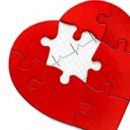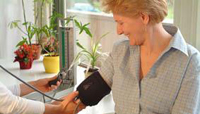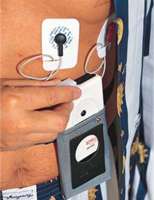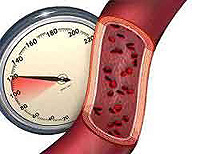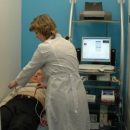The problem of heart rhythm disorders remains relevant, and no matter how much works devoted to this topic is impossible to exhaust it. Arrhythmia is widespread and may arise for various reasons. Let's try to figure it out more about what arrhythmia is?
Content
What is arrhythmia
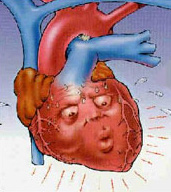 Arrhythmia - violation of the normal frequency or periodicity of heart cuts.
Arrhythmia - violation of the normal frequency or periodicity of heart cuts.
In a healthy person in a state of physical and emotional rest, the heart rate is 60-90 abbreviations in 1 minute. At the same time, the gaps between the abbreviations are almost constant, a person does not feel the work of his heart.
In exercise, an increase in heart rate (physiological tachycardia) is observed while maintaining the right rhythm. A similar reaction is observed in emotional voltage, being a normal heart response to the activation of the nervous system.
Under arrhythmia, usually understand the pathological changes in the frequency and rhythm of heart abbreviations that may be observed and at rest.
Communication arrhythmia with heart disease
Not always. Quite frequent, especially in young people arrhythmia is not related to heart disease. Arrhythmias may occur under the influence of vegetative, endocrine, electrolyte and other metabolic disorders, during intoxications and some medicinal effects.
A healthy person provoke arrhythmia can abundant food, constipation, close clothes, insect bites, some drugs, stress. High risk of developing arrhythmia in people suffering from diabetes, especially if it is combined with obesity and elevated arterial pressure.
Arrhythmias may occur at more harmless reasons: for example, premenstrual syndrome in women is often accompanied by arrhythmias, heart pains, a feeling of suffocation.
In some cases, arrhythmias may arise in structural changes in the conductive heart and myocardial diseases.
Causes of arrhythmia
The factors listed above affect the main functions (automatism, conductivity) of the entire conductive system or its departments, determine the electrical instability of myocardium, which leads to arrhythmia.
In some cases, arrhythmia is caused by individual congenital anomalies of the conductive system.
Symptoms arrhythmia
 A rather large range of complaints arising during arrhythmias. In many cases, they remain unnoticed and their identification is possible only when examined.
A rather large range of complaints arising during arrhythmias. In many cases, they remain unnoticed and their identification is possible only when examined.
In some cases, the frequency of certain symptoms, the most characteristic complaints depends on the acuteness of the disease and the duration of the disease at the time of appeal to the doctor.
Danger in arrhythmia
In cases of overwork, stress, intoxication and reception of some medicinal substances, arrhythmia passes independently.
In structural diseases of myocardium and the conductive heart system, arrhythmia exacerbates the state of the heart and with the struggled forms of the disease become the leading in the complaints of the patient.
Examination at arrhythmia
Most arrhythmias can be diagnosed on clinical (by symptoms) and electrocardiographic features. Occasionally, a special electrophysiological study is necessary (intracardiac or internal electronics with stimulation of departments of a conductive system), carried out in specialized cardiological institutions.
Treatment of arrhythmia
Treatment of arrhythmias always includes the treatment of the underlying disease and actually anticultimit measures.

